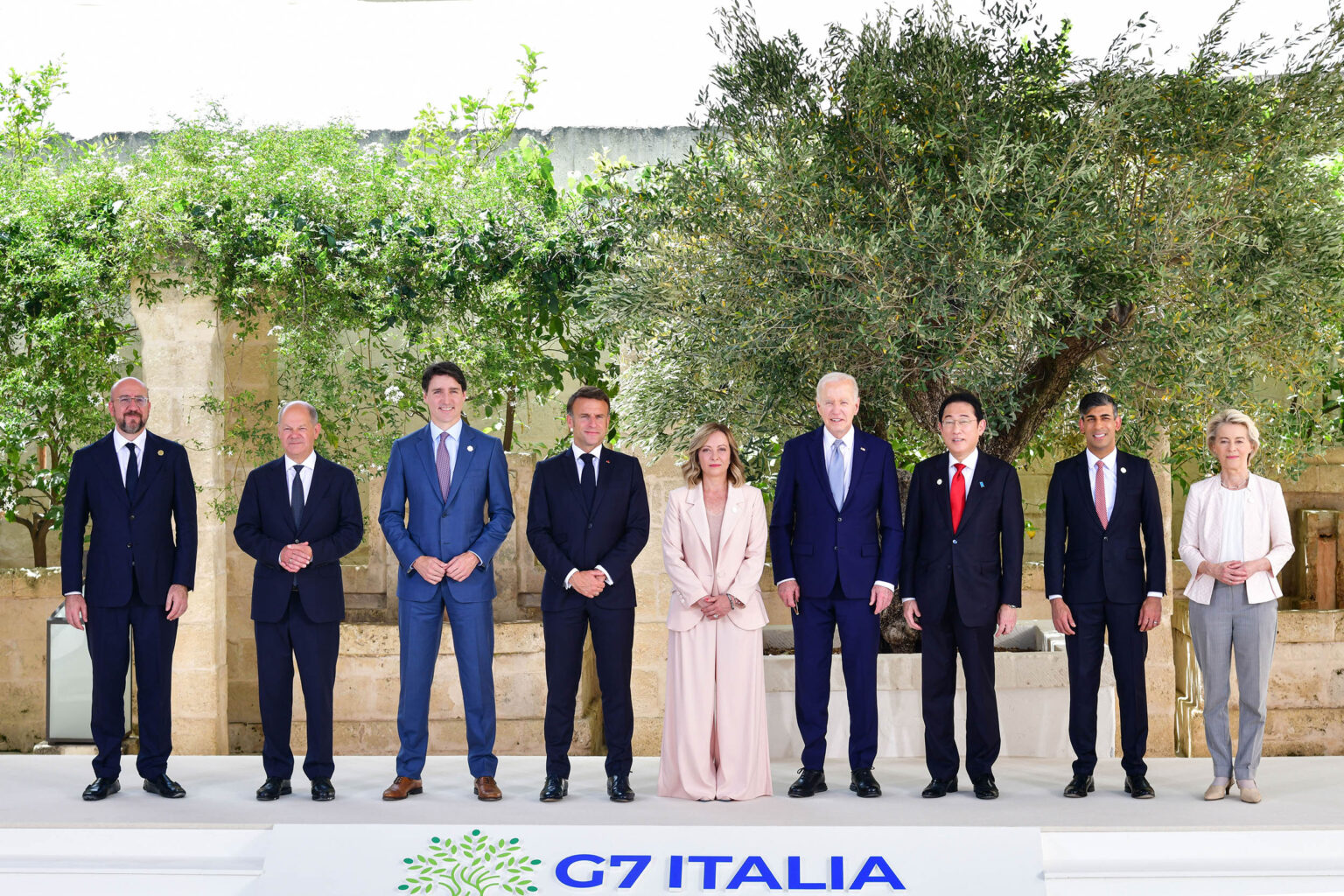In recent years, it can be argued that the G7 has been dominated by Washington, transforming it into its ‘kitchen cabinet’ in the transatlantic system. The reduction to G7 from G8 in March 2014, an outcome of the Ukrainian coup, was a pivotal moment signifying no foreseeable peace dividend post-cold war. What was originally envisioned as a group informing the global economy instead became vehicle for big-power rivalry in an attempt to preserve US’ global dominance. The focus on isolating Russia, and recently China, became the key narrative.
However, the failure of western attempts to isolate Russia has caused the G7 to lose sense of direction. Giorgia Meloni, Italy’s Prime Minister, has moved to habilitate the G7, using her tenure as host to put artificial intelligence (AI) high on the agenda. The Prime Minister even invited the Pope, an unlikely guest, to argue for AI regulation at the G7 summit, hosted at Borgo Enyatia in Italy, using his scientific background to advocate for this potentially harmful technology. Furthermore, Italy has displayed increasing scrutiny of AI, leading to the temporary suspension of ChatGPT in March 2023.
However, along with this renewed focus on technology and AI, the G7 is seeking to broaden its reach beyond a closed club of Western democracies, inviting numerous non-Western world leaders to the summit. This move is widely seen as a strategic play in realpolitik, with the G7 attempting to bridge the gap between ‘the West and the Rest’.
Yet, this geopolitical strategy could backfire if expectation meets reality. For instance, the decision to freeze Russian assets totaling $300 billion with the intention of using the yield for Ukraine’s military needs has not been met with universal approval. Unsurprisingly, European members and Japan have voiced their opposition to this strategy. Should this move materialise, it could set a worrying precedent, undermining global financial stability and legal norms while fomenting distrust in European institutions.
Moreover, G7 leaders will need to persuasively explain to ‘outreach’ countries that this approach will not be replicated against countries like India, Turkey or Saudi Arabia.
To complicate matters, the 16th summit meeting of BRICS (Brazil, Russia, India, China, and South Africa), under the chairmanship of Russian President Vladimir Putin, looms as a potential threat for the G7. One key topic expected to be discussed at the BRICS meeting in Kazan is the creation of a single currency within the grouping, a direct response to the ongoing sanctions from the US and the European Union.
Whilst the future of the G7 remains uncertain, it appears that Giorgia Meloni has reframed the summit’s agenda with an eye towards Italy’s strategic interests in Africa, migration and the Mediterranean. All eyes will be on the outcome of these initiatives, along with the G7’s ongoing strategy towards Russia and non-Western countries.
In an unprecedented, topsy-turvy political environment, it remains to be seen whether the G7 can regain its sense of direction and influence over global policy.
